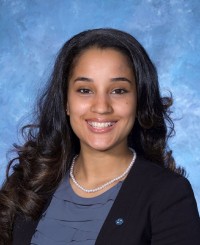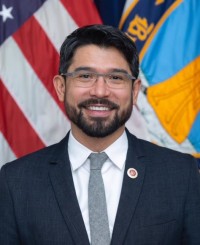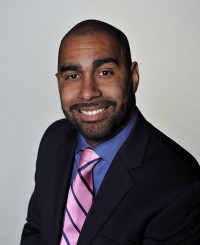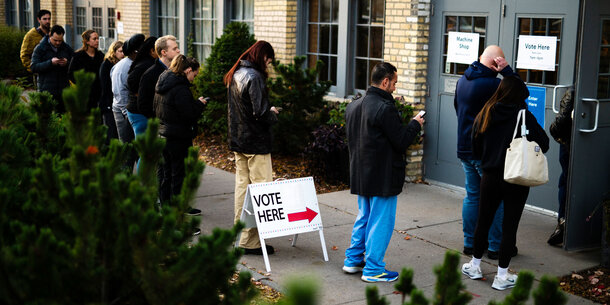A Spanish version of this interview is here.
Every 10 years, the census takes a snapshot of the country to determine how our communities are represented in statehouses and Congress, as well as how much federal funding they get for everything from schools to roads and hospitals.
The country’s large Latino population can claim its fair share of this political power and funding only if everyone gets counted, but many Latinos don’t participate in the count, often out of fear that the government may illegally try to use responses against undocumented immigrants.
The Brennan Center’s Mireya Navarro talked to three experts about how to improve the Latino count this spring amidst the coronavirus pandemic: Carlos Menchaca, co-chair of the 2020 Census Task Force of the New York City Council; Emely Paez, director of government affairs and civic engagement for the Hispanic Federation; and Jorge Luis Vasquez Jr., associate counsel at LatinoJustice-PRLDEF.
This interview has been edited for length and clarity.

How has the coronavirus crisis affected the effort to get a higher response rate among Latino households in New York City, the epicenter of the pandemic in the country?
Emely Paez: The health crisis has created both opportunities and challenges. It has definitely affected outreach — being on the street, engaging canvassers and talking to people and our neighbors on the ground. However, because people are being advised to stay home, we can maximize the use of our virtual outlets — our social media, our mass media — working with organizations and our radio stations to engage communities.

Carlos Menchaca: I think this is going to be a silver lining. We all follow each other on Instagram and Facebook. People are like, “This was easy, do it yourself.” Then people are responding and saying, “I did it.” Then they’re saying, “Go get 10 people to do it.” That’s the kind of organic grassroots effort that is happening in this little chamber of communication that we’re all in. People’s ears are perked right now.
Latinos are among the groups persistently undercounted in the census. What are some of the obstacles to getting full Latino participation in 2020?

Jorge Luis Vasquez Jr.: We recently held live telethons with different media outlets, and the number one question we got was whether there is a citizenship question on the 2020 census and whether someone who is not a U.S. citizen can participate in the census. We need to educate: no citizenship question, and it doesn’t matter where you were born or whether you are a U.S. citizen.
Menchaca: The first thing that I hear is, “Oh, the census? Oh, that’s not for me. I’m not going to do that. I’m an immigrant.” The second thing I hear is that this is not something that is important. “I don’t have time for that.”
There’s a real disconnect about the power of the census. People only experience the fear component, which is their fear that this is going to be information that’s going to be housed somewhere in the government and used for deportation machine efforts. What they don’t see is that not only are they protected, but they are also unlocking thousands of dollars per person for their neighborhood. Low trust in government because of the Trump administration, low access to internet and computers — those barriers don’t go away.
How are you trying to break through those barriers?
Paez: In addition to the virtual platforms and mass media, we’re using a peer-to-peer texting system and phone banks. We will be texting in Spanish and in English the mobile devices of those who have already signed up for message systems within the Hispanic Federation. We’re talking about the individuals who have come to our office or have been a part of our universe of 74 member agencies throughout the five boroughs. The goal is to make sure that folks are so fed up with listening about the census, that they’re just going to say, “Yeah, I give up! I surrender! You can have my 10 minutes to complete the census!”
Menchaca: What we are doing right now in the city is really retooling, so that we move all of the operations from door-knocking, which was going to be a massive component to this whole thing, to doing it online. We’re just at the beginning, so I’m hoping to present better data over time as we get to summer that show we’re actually doing a good job. We are relying on our relationships with community organizations to connect to their members.
Emely, you’ve said young Latinos have a special role to play within immigrant families.
Paez: Young Latinos are family navigators. Having gone through the education system in the United States, they are more familiar with American culture. They can help their parents understand what are the myths and what are the facts. , and are so vital in making sure that our homes are counted. It’s important for our communities — Guatemalans, Colombians, Dominicans, Puerto Ricans — to understand that our families may have certain cultures, but when we are here in the United States, there is one culture, right?
What are the consequences of missing the true number of Latinos in the country?
Vasquez: My home state of New York is at risk of losing more than $2,600 per person annually for every individual that’s undercounted. And that’s just from 10 federal programs. The country cannot afford for Latinos not to count themselves.
Menchaca: The stakes are big. A drop in Latino and Spanish-speaking community census counts is going to mean a drop in dollars for healthcare, for education. So much of what I’ve seen in my time as a council member is the inability to build schools in immigrant communities. That’s because we don’t have all the funding that we need from the federal government. Then there’s all the infrastructure that the federal government can bring to a city, the housing, the roads, the parks in our neighborhoods. That leads to representation. We need more congressional representation.
What is your main message to Latinos to encourage them to respond to the census mailer?
Vasquez: Everyone has an equal say in participating in the census. Everyone has an equal obligation.
Menchaca: The message right now is, if you are at home right now feeling helpless, feeling like you’re trapped, then the thing that you can do to help yourself and your community and your city is to get people to fill out the census. That’s one thing that’s going to save our city in this a massive economic downturn that’s on its way.
Paez: Ten questions will impact our communities for the next 10 years. The census tells a story about the Latino communities, past, present, and future.



